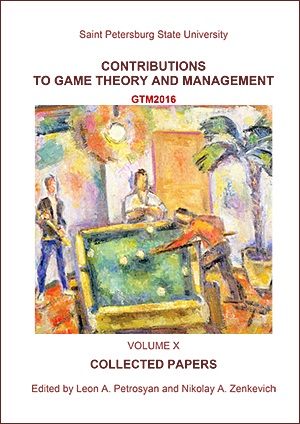Application of Game Theory in the Analysis of Economic and Political Interaction at the International Level
Abstract
The main objective of the work is to consider possible approaches to the application of the theory of cooperative games for the simulation of the relationship between the major centers of economic and political influence in the modern world.
The authors discuss three main interval repositioning of political forces in the world until 2008, from 2008 to 2014 and after 2014. Model presented in the building on political cooperation are intended to reflect the economic component of this interaction on the world market.
The results are subject to more detailed content analysis. Special attention is paid to the issues of construction of characteristic functions for cooperative games, the underlying model «interaction of the centers of political forces». In particular, the technique of construction of characteristic function, involving the use of baskets, constructible on currencies of countries coming together in a coalition.
Keywords:
cooperative games, cooperative models interaction of the international centers of power, stochastic cooperative games, imputations, Shapley value
Downloads
References
stochastic differential games. In:J.Optimiz. Theory and Appl., 120(3), 651–666.
Downloads
Published
How to Cite
Issue
Section
License
Articles of "Contributions to Game Theory and Management" are open access distributed under the terms of the License Agreement with Saint Petersburg State University, which permits to the authors unrestricted distribution and self-archiving free of charge.




